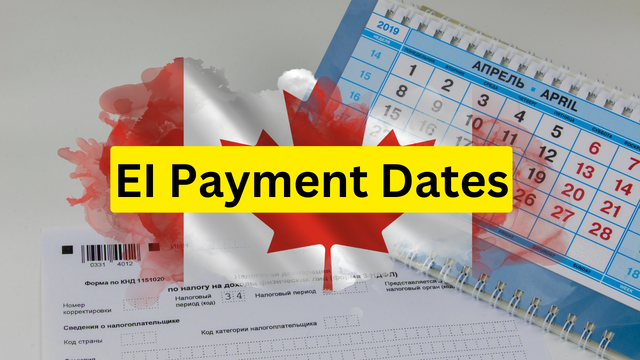Employment Insurance (EI) is a government program in Canada that provides financial support to individuals who have lost their jobs or cannot work due to certain life events like illness, pregnancy, or caregiving responsibilities. The payment structure, benefits, and procedures remain crucial for those relying on EI benefits in 2024. Keep reading for 2024 details.
EI Payment Dates for 2024
Ei Payments are made every two weeks after submitting your reports. The actual dates can slightly change based on when you submit your bi-weekly reports, but here’s the schedule for 2024:
| Month | EI Payment Dates (2024) |
|---|---|
| January | Jan 9, Jan 23 |
| February | Feb 6, Feb 20 |
| March | Mar 5, Mar 19 |
| April | Apr 2, Apr 16, Apr 30 |
| May | May 14, May 28 |
| June | Jun 11, Jun 25 |
| July | Jul 9, Jul 23 |
| August | Aug 6, Aug 20 |
| September | Sep 3, Sep 17 |
| October | Oct 1, Oct 15, Oct 29 |
| November | Nov 12, Nov 26 |
| December | Dec 10, Dec 24 |

How to Get the Most Out of Your EI Benefits
The amount of money you receive from EI depends on how much you were earning before taxes. Your payout is calculated as 55% of your average weekly insurable earnings, up to a maximum of $668 per week in 2024. Here’s how you can maximize your EI return:
- Accurate Reporting of Hours: Ensure all your insurable hours are reported correctly, especially if you had multiple jobs. Missing hours can lower your benefits.
- Submit Timely and Correct Applications: Make sure your application is complete with all required documents to avoid delays.
- Check Insurable Earnings: The maximum insurable earnings for 2024 is set at $63,200. The higher your insurable earnings, the higher your weekly benefit, but no more than the maximum
Reporting Your EI Claim
You must submit reports every two weeks to continue receiving benefits. These reports verify that your situation remains the same and that you’re still eligible.
- Submit on Time: You have up to three weeks after the last report to submit the next one. Delays in submitting could disrupt your payments.
- Declare Earnings: If you’ve earned any income while on EI, it must be declared. Undeclared earnings can result in overpayment, which you would need to pay back.
What to Do If Your Payment Is Delayed
Payments are usually issued 2-3 business days after you file your report. Here are steps to follow if there’s a delay:
- Check Your Report Submission: Ensure your report was submitted correctly and on time.
- Monitor Your CRA Account: You can track your payments online using your My Service Canada account.
- Update Banking Information: Make sure your direct deposit details are up to date
keeping your personal and banking information up to date, and responding quickly to any EI requests can make a big difference. Additionally, it’s important to understand the different types of EI benefits available to you, such as sickness, maternity, or caregiving benefits so, as you move forward in 2024, keep this guide close.
